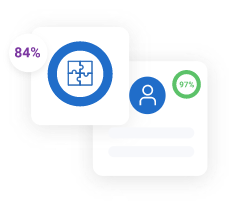- Αίτηση
- Πληροφορίες
Αίτηση μέσω Brive
Συμπλήρωσε την αίτησή σου για αυτό το πρόγραμμα, και τα υπόλοιπα τα αναλαμβάνουμε εμείς!
Λαμβάνεις δωρεάν έλεγχο/κατάθεση αίτησης |
Αυξάνεις τις πιθανότητες εισαγωγής σου |
Είμαστε επίσημοι συνεργάτες του Πανεπιστημίου |
Διάρκεια
2 Έτη
Γλώσσα
Αγγλικά
Περιγραφή Προγράμματος
The Associate Degree in Mathematics for Transfer prepares students to transfer into a curriculum at a four-year institution to pursue a baccalaureate degree in Mathematics.
After finishing the two-year program, you can transfer to a public or private university to pursue a degree.
After finishing the two-year program, you can transfer to a public or private university to pursue a degree.
Προϋποθέσεις Εισαγωγής

Καλύπτεις τα κριτήρια;
Κάνε εγγραφή, διάβασε τις προϋποθέσεις εισαγωγής και δες τη συμβατότητά σου.
Κορμός Μαθημάτων
Μαθησιακά Αποτελέσματα
- Preparation and mathematical maturity: Be prepared for the mathematical or statistical reasoning required in upper division work in their major, including the ability to generalize mathematical concepts and comprehend increasing levels of mathematical abstraction.
- Mathematical literacy: Communicate using mathematics: a. Read with comprehension documents having mathematical content and participate cogently in discussions involving mathematics; b. Clearly articulate mathematical information accurately and effectively, using a form, structure and style that suit the purpose (including written and face-to-face presentation)
- Problem-solving ability: a. Reason with and apply mathematical concepts, principles and methods to solve problems or analyze scenarios in real-world contexts relevant to their major; b. Use technology effectively to analyze situations and solve problems; c. Estimate and check answers to mathematical problems in order to determine reasonableness, identify alternatives, and select optimal results.
- Modeling ability: a. Construct and interpret mathematical models using numerical, graphical, symbolic and verbal representations with the help of technology where appropriate in order to draw conclusions or make predictions; b. Recognize and describe the limits of mathematical and statistical methods.
- Effective learning skills: a. Independently acquire further mathematical knowledge without guidance, take responsibility for their own learning, determine appropriateness and correctness of their own work and function effectively in different learning environments. b. Succeed in different learning environments, particularly in a group setting of working collaboratively with others.
Περισσότερα
Μη ενημερωμένο περιεχόμενο
Το περιεχόμενο δεν έχει ελεγχθεί τους τελευταίους 6 μήνες
Χρειάζεσαι βοήθεια στην αίτησή σου;
Προγραμμάτισε, σήμερα, μία δωρεάν συμβουλευτική συνεδρία μαζί μας!
Παρόμοια προγράμματα |